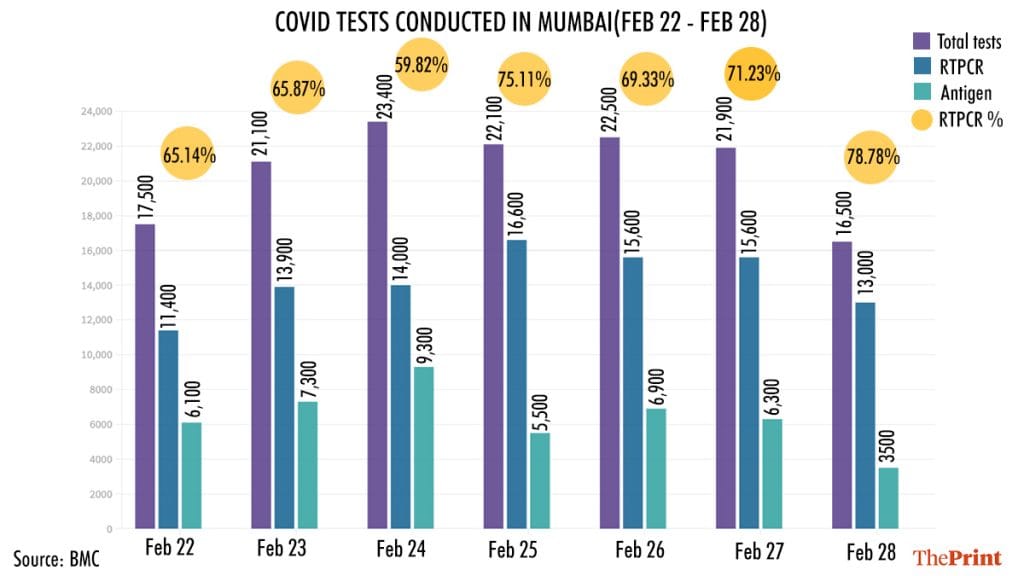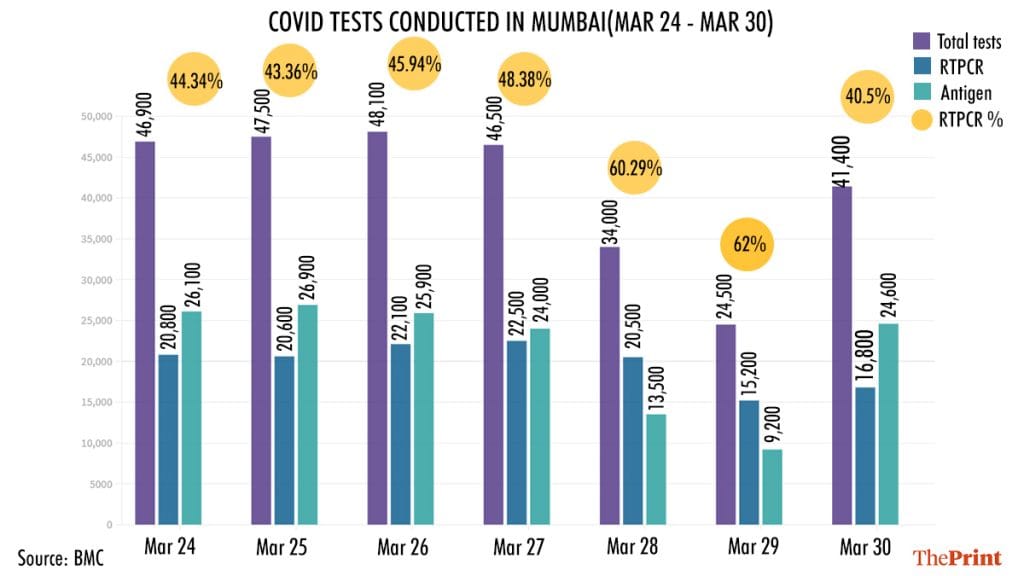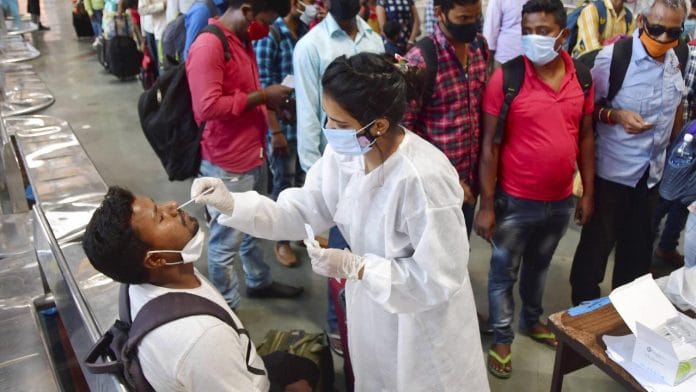Mumbai: Mumbai, which is once again struggling to contain its Covid caseload, has nearly doubled the number of tests in the last one month — from about 20,000 tests a day to over 40,000.
However, the percentage of RT-PCR tests, considered to be the gold standard in testing for Covid, has plummeted to a seven-day average of 48 per cent in the past week, from 69 per cent in the last week of February.
Civic officials in Mumbai, however, say the emphasis on more rapid antigen tests (RATs) is deliberate because it is the city’s floating population that needs to be kept in check in the current wave.
Over the past seven days from 24 March to 30 March, the Brihanmumbai Municipal Corporation (BMC) tested 41,271 samples a day, compared to an average of 20,714 between 22 February and 28 February.
Most of this rise has come from aggressively increasing RATs, which give quick results (within 30 minutes) but are less reliable than RT-PCR, the results of which can take up to a day.
The Centre has time and again advised states to ensure that its cities and districts are conducting at least 70 per cent tests through RT-PCR.


Mumbai has so far recorded 4,23,360 Covid positive cases, of which 55,005 are active. The city has been recording new peaks in its battle against the virus almost every day. On 1 April, it recorded its highest ever daily caseload with 8,646 cases.
Also read: Covid isn’t over, and the next wave may be worse
‘Can’t target floating population with RT-PCR’
The BMC has instructed its 24 administrative wards, seven railway stations and the Maharashtra State Road Transport Corporation’s bus depots, as well as private malls in the city, to randomly test visitors for Covid.
According to officials, Mumbai has a very large floating population that comes for work and needs to be tested, but can’t be targeted with RT-PCR tests.
“In Mumbai, the floating population is a very high in number. These are the people traveling by local trains, visiting malls and restaurants. They quickly vanish into the crowd and it is difficult to trace them,” said Suresh Kakani, additional municipal commissioner at BMC.
“People are wary of giving out their addresses and contact numbers when they visit crowded public places, so an RT-PCR here doesn’t help. With an antigen test, we get results in 20-30 minutes and take immediate action.”
In the last week of February, the BMC was conducting about 14,300 RT-PCR tests a day. While this number has grown to 19,788 now, most of the increase in the daily testing figures has come from the less reliable RATs.
On an average, in the past week, the BMC has conducted 21,457 antigen tests a day as against 6,414 a day about a month ago between 22 February and 28 February.
Kakani said, “It is not that we haven’t increased our RT-PCR testing, which has also shot up from about 15,000 a day last month to 20,000 now. We have the capacity and infrastructure to increase it further, but we are using RT-PCR only for persons with permanent establishments such as shop owners.”
On 20 March, the BMC instructed all its 24 administrative wards to randomly conduct antigen tests on visitors. It also drew up a list of 27 malls in the city and gave each a target of conducting 400 RATs every day.
Similarly, seven railway stations were asked to randomly test 1,000 inbound passengers each day, while bus depots of the MSRTC were directed to test at least 1,000 passengers a day.
Each of the BMC’s 24 administrative wards have been given a target of testing 1,000 persons a day, focusing on crowded places such as restaurants, hawkers, market places and tourist attractions.
(Edited by Sanghamitra Mazumdar)
Also read: A month on, Amravati yet to receive results of samples sent to NIV Pune for Covid mutations






